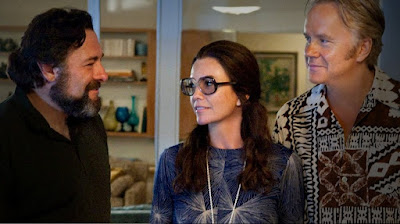Nestes dois trechos Hitchcock resume de forma brilhante e em pouquíssimas palavras tudo o que a arte é, em termos técnicos e objetivos, assim como na sua carga subjetiva. Dito isto vejamos o primeiro trecho.
Alfred Hitchcock num Seminário da AFI em 1970
"To be quite honest, content, I’m not interested in it at all. I don’t give a damn about what the film’s about. I’m more interested in how to handle the material to create an emotion in an audience"Aqui Hitchcock diz-nos tão simplesmente que a arte tem de se exprimir, tem de gerar uma reação na audiência. O conteúdo poderia ser qualquer um, a forma como este é tratado é que muda totalmente o modo como a audiência perceciona esse conteúdo. Mas não se fica por aqui, numa entrevista anterior a esta vai mais ao detalhe,
Excerto de, A Talk With Hitchcock, CBC (1964)
"The painter is not interested in the apples for themselves alone, but in the technique of his work which stimulates the emotion of the viewer of his picture. After all, all art is experience…
"in film it is not the story, it is what you do with it… therefore I find that with many people they look at a film and they look at the content only, and never seem to study (I'm talking about the critical faculty) what was in the film to make an audience goes through these various emotions"Na verdade Hitchcock não foi apenas um visionário capaz de chegar as massas, convenceu muita da classe daquela altura. A longa conversa realizada entre Hitchcock e François Truffaut em 1962 são disso um ótimo exemplo. Uma conversa que daria um dos livros mais importantes sobre Hitchcock, Hitchcock by Truffaut: A Definitive Study of Alfred Hitchcock (1967) e que pode ser ouvida hoje na integra na Wiki dedicada realizador.
Recentemente o Telegraph promoveu uma discussão à volta dos melhores diretores britânicos de sempre, na qual Hitchcock aparece listado em primeiro lugar. Mais interessante é o modo os críticos resumiram num só paragrafo quem foi Hitchcock,
"Unquestionably the greatest filmmaker to emerge from these islands, Hitchcock did more than any director to shape modern cinema, which would be utterly different without him. His flair was for narrative, cruelly withholding crucial information (from his characters and from us) and engaging the emotions of the audience like no one else."



































